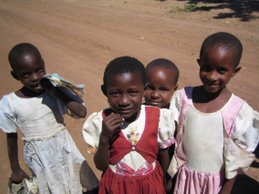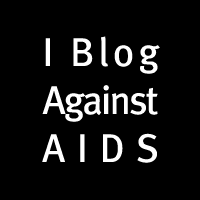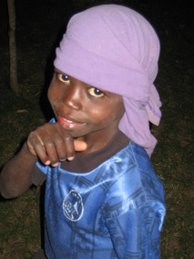Takwa Hopital
This morning the newer volunteers and I visited the regional hospital in Mwanza. Today the doctors weren't in meetings and were able to give us a tour of the hospital. They have no computers, the files are all done by paper that spills out in an enormous room. The equipment they are using is fairly primitive, and very costly for those that don't qualify for free health care (children under five and pregnant women). One of the doctors told me that they would be greatful for any donations of childrens medications, the need is too great for the meagre funds of the hospital and they cannot afford to stock the necessary medications. We visited the mens ward, and saw the men lying two to a tiny hospital bed. Most patients didn't have sheets, and those that did were lying on dirty ones. The hospital doesn't provide food for patients, so unless you have family that can afford to and live close enough to bring you food, you scrounge other people's left overs or starve. The majority of patients were hopitalised from malaria, a disease that can be prevented by US$10 mosquito nets.
I visited the STI/AIDS/TB ward and spoke to the nurses there for quite some time, and was really inspired by their passion. Tanzania has recently received a lot of funding to combat AIDS (and to a lesser extent TB). The TB programme at the hospital is funded through the Stop TB programme at the WHO. The nurse on duty told me that MDR TB (multi-drug resistant TB) is really low in Mwanza and that patients are usually very good about taking the full course of medication under DOTS (directly observed therapy shortcourse) which is 2 months of coming to the hospital every day and then another 6 months of drugs. TB is the leading cause of death for people with HIV. The hardest thing for people is to pay for transport to and from the hospital, so smaller community programmes are being developed to enable more people to be treated. The ARV nurses spent a long time talking to me and were very helpful. Since October Tanzania has been rolling out a national programme to treat AIDS patients. The nurses told me that the treat under 200 people at the hospital, and that they are trying to scale up the programme as quickly as possible. The major obstacles they have are getting people to the hospital (transportation costs are expensive), the regimen is very complicated and some drugs must be taken with food and some without (for poor people with little resources eating at the right times is difficult), and the stigma attached to HIV makes people less likely to get tested even when they are sick. Despite these obstacles, local people are working really hard to get people treated and keep them alive. The resounding message this morning was: people here know what to do and are trying to do it, all they need is the funding to do it properly.








No comments:
Post a Comment